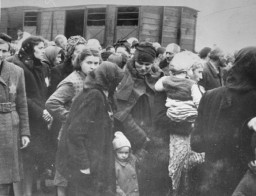You searched for: ���������������������������������������������fuk7778���your
<< Previous | Displaying results 151-162 of 163 for "���������������������������������������������fuk7778���your" | Next >>
-
Blanka Rothschild describes returning to Lodz after the war to look for family members
Oral HistoryBlanka was an only child in a close-knit family in Lodz, Poland. Her father died in 1937. After the German invasion of Poland, Blanka and her mother remained in Lodz with Blanka's grandmother, who was unable to travel. Along with other relatives, they were forced into the Lodz ghetto in 1940. There, Blanka worked in a bakery. She and her mother later worked in a hospital in the Lodz ghetto, where they remained until late 1944 when they were deported to the Ravensbrueck camp in Germany. From Ravensbrueck,…
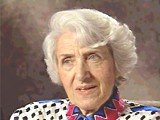
-
Lucine Horn describes her escape from the Majdan Tatarski ghetto
Oral HistoryLucine was born to a Jewish family in Lublin. Her father was a court interpreter and her mother was a dentist. War began with the German invasion of Poland on September 1, 1939. Lucine's home was raided by German forces shortly thereafter. Soon after the German occupation of Lublin, Jews there were forced to wear a compulsory badge identifying them as Jews. A ghetto in Lublin was closed off in January 1942. Lucine survived a series of killing campaigns and deportations from the ghetto during March and…
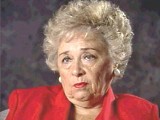
-
Ivo Herzer describes a roundup (from which he was released) of Jews by Croatian collaborators in 1941
Oral HistoryIvo grew up in a middle-class Jewish family in Zagreb. He experienced little overt antisemitism until the Germans and their allies invaded Yugoslavia in April 1941 and installed a fascist Ustasa government in Croatia. The Ustasa regime began killing Jews, Serbs, and Roma (Gypsies). Ivo's family escaped to Italian-occupied territory, where the Italians tried to protect Jewish refugees. Ivo lived in Italian internment camps, including the Rab island camp, before moving to mainland Italy in 1944. He worked…
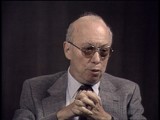
-
Sophie Turner-Zaretsky describes moving to London after liberation and discovering her Jewish heritage
Oral HistorySophie was born Selma Schwarzwald to parents Daniel and Laura in the industrial city of Lvov, two years before Germany invaded Poland. Daniel was a successful businessman who exported timber and Laura had studied economics. The Germans occupied Lvov in 1941. After her father's disappearance on her fifth birthday in 1941, Sophie and her mother procured false names and papers and moved to a small town called Busko-Zdroj. They became practicing Catholics to hide their identities. Sophie gradually forgot that…
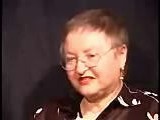
-
Leah Hammerstein Silverstein describes the aftermath of the Holocaust and the search for survivors
Oral HistoryLeah grew up in Praga, a suburb of Warsaw, Poland. She was active in the Ha-Shomer ha-Tsa'ir Zionist youth movement. Germany invaded Poland in September 1939. Jews were forced to live in the Warsaw ghetto, which the Germans sealed off in November 1940. In the ghetto, Leah lived with a group of Ha-Shomer ha-Tsa'ir members. In September 1941, she and other members of the youth group escaped from the ghetto to a Ha-Shomer ha-Tsa'ir farm in Zarki, near Czestochowa, Poland. In May 1942, Leah became a courier…
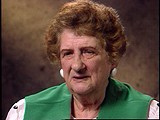
-
Benjamin (Beryl) Ferencz describes how he became involved in preparations for the Subsequent Nuremberg Proceedings
Oral HistoryBen was born in a small village in the Carpathian Mountains of Transylvania in Romania. When he was an infant, his family moved to the United States. Ben attended Harvard University, where he studied criminal law. Ben graduated from Harvard University Law School in 1943. He joined a US anti-aircraft artillery battalion that was training in preparation for an Allied invasion of western Europe. At the end of World War II in Europe, Ben was transferred to the war crimes investigation branch of the US Army. He…
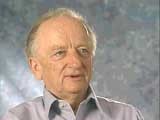
-
Irene Hizme and Rene Slotkin describe being separated from their mother upon arrival in the Auschwitz camp
Oral HistoryIrene and Rene were born Renate and Rene Guttmann. The family moved to Prague shortly after the twins' birth, where they were living when the Germans occupied Bohemia and Moravia in March 1939. A few months later, uniformed Germans arrested their father. Decades later, Irene and Rene learned that he was killed at the Auschwitz camp in December 1941. Irene, Rene, and their mother were deported to the Theresienstadt ghetto, and later to the Auschwitz camp. At Auschwitz, the twins were separated and subjected…
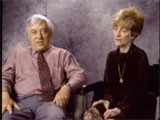
-
Felix Horn describes a hiding place in Warsaw
Oral HistoryFelix was born to an assimilated Jewish family in Lublin, Poland. His father was a locksmith and his mother was a singer. Following the German invasion of Poland on September 1, 1939, Felix fled east to Rovno and then to Soviet-occupied Lvov, where he was accepted at a medical school. After the German invasion of the Soviet Union in June 1941, Felix was taken to a labor camp. He escaped and returned to Lublin, and found that his family had been forced into the ghetto established there. After the…
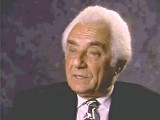
-
Leo Bretholz describes his escape from a train during deportation from the Drancy camp
Oral HistoryAfter the Germans annexed Austria in 1938, Leo attempted to flee. He eventually reached Belgium. In 1940 he was deported to the St.-Cyprien camp in France but escaped. In 1942 Leo was smuggled into Switzerland but was arrested and sent back to France, this time to the Rivesaltes and Drancy camps. He and a friend escaped from a train deporting them to Auschwitz in Poland. Leo joined the French underground in 1943. He arrived in the United States in 1947.
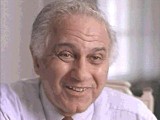
-
Paul Eggert, Helga Gross, and Dorothea Buck describe forced sterilization
Oral HistoryPaul Eggert was categorized as "feeble-minded." At age 11, he was institutionalized and sterilized without his knowledge. Helga Gross attended a school for the deaf in Hamburg, Germany. She was sterilized in 1939, aged 16. At age 19, Dorothea Buck was diagnosed as schizophrenic and sterilized without her knowledge. [Photo credits: Getty Images, New York City; Yad Vashem, Jerusalem; Max-Planck-Institut für Psychiatrie (Deutsche Forschungsanstalt für Psychiatrie), Historisches Archiv, Bildersammlung GDA,…
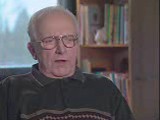
-
Life After the Holocaust: Thomas Buergenthal
ArticleAfter WWII and the fall of the Nazi regime, Holocaust survivors faced the daunting task of rebuilding their lives. Listen to Thomas Buergenthal's story.
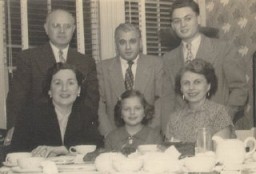
-
Introduction to the Holocaust
ArticleLearn about the Holocaust, the systematic, state-sponsored persecution and murder of six million Jews by the Nazi regime and its collaborators.
